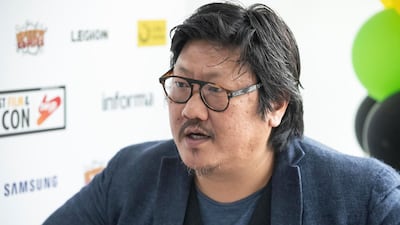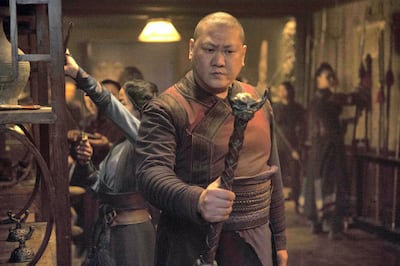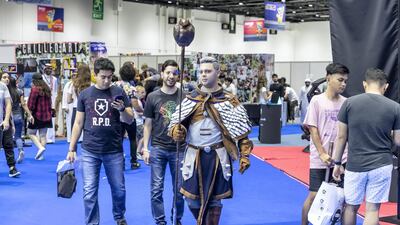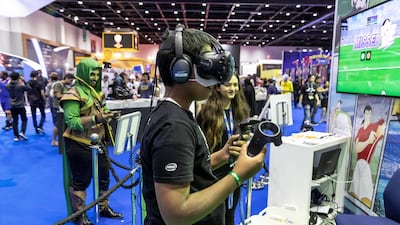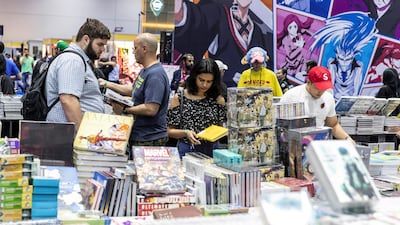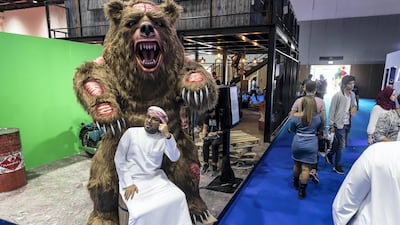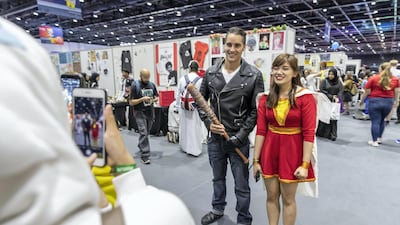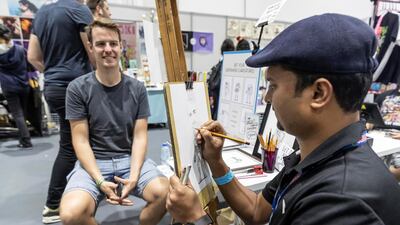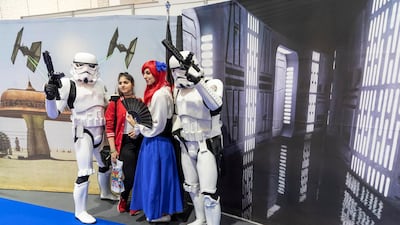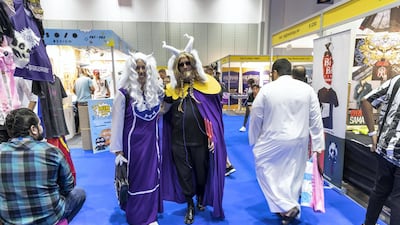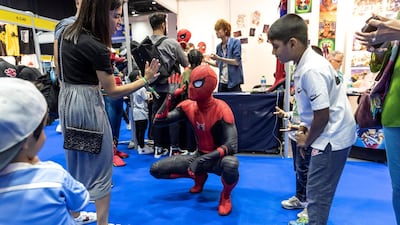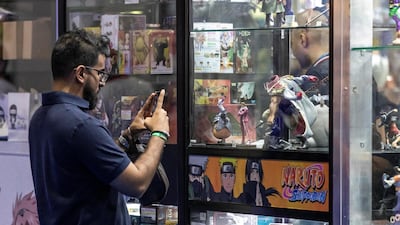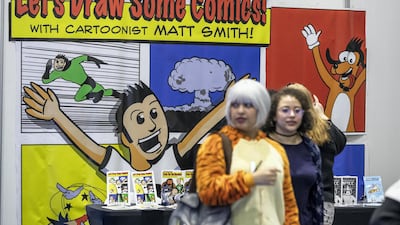Making the leap from regular on British television to full-blown Hollywood action star is something that eludes even some of the United Kingdom's greatest acting talents.
But not all of them have Tim Piggot-Smith (V for Vendetta, Quantum of Solace) and Joanna Lumley (Absolutely Fabulous) as mentors.
Mancunian actor Benedict Wong cemented his place in Hollywood as part of the Avengers franchise. But even he admits it was never part of his plan.
The Doctor Strange star was at Dubai's Middle East Film and Comic Con at the weekend, and spoke freely about the lucky breaks in his early career.
I asked him how a kid from a Hong Kong immigrant family, who grew up a few streets away from me (and supports the wrong football team), landed a role in the world's biggest cinema franchise (the Marvel Cinematic Universe), the biggest show ever made by a streaming giant (Marco Polo), and leading roles in some of the UK's greatest indie fare (The IT Crowd, Dirty Pretty Things), then went on to become such a global icon.
“I don’t know, really,” he says modestly. “I found myself in a co-operative in Manchester. I learnt to represent myself. I was really lucky because I’d done everything I could just to be in the theatres in Manchester. I’d sweep the floor at The Green Room. Hang around at The Library and The Royal Exchange.”
Wong admits that his main ambition at this point was simply to appear on stage at Manchester’s Royal Exchange Theatre, but then things accelerated.
“I was working the theatres in Manchester, and [actors] Tim Piggot-Smith, and Joanna Lumley, too, kind of took me under their wing. They were like mentors. You get to a point in Manchester, and I couldn’t get any work [in theatre] there anymore. I was no longer a human being anymore, I was a race. It was like ‘join a Chinese theatre company’. What? So I had to move to London. It turned out OK.”
Wong neatly raises the issue of his character in the MCU films. If you've ever read a Dr Strange comic, you're probably aware that comic book Wong is little more than a pliant assistant who makes tea. The MCU's Wong is somewhat more powerful than that, however. So, who influenced this?
“I went back to the source material and he was this servile, you know,” he says. “I went into the trailer where [Marvel chief] Kevin Fiege was, and said ‘I’m not sure about this, you know? He’s a bit servile’. They were like ‘No, no, no, that’s not what we’re doing. Don’t worry.’ And I ended up with this character that’s a bit ‘I’ll break your fingers if you bring your books back late. He takes no **** off of Dr Strange. He’s his equal.”
Wong may now be a Marvel action star, but his path to this point has been varied.
He has played Kublai Khan in, at the time, Netflix's most expensive series to date, Marco Polo. He also played scientist Bruce Ng in Ridley Scott's Oscar-winning 2015 film The Martian. He is currently best-known as Wong in the Marvel Cinematic Universe's Avengers series.
This also means he is well-placed to weigh in on the long-running Netflix cinema debate. . In May 2017, Netflix chose to release Okja with a Cannes premiere. That caused plenty of consternation with cinema purists, and even more when the film was showed in the wrong aspect ratio. A technical glitch that shouldn't really matter, but it does when it comes to this debate.
Netflix is now banned from screening films "in competition" at Cannes, not because of the technical glitch, but because purists believe it doesn't make "films".
Step forward cinema royalty Steven Spielberg, who is now pressing to have Netflix removed from Oscars contention, while the Cannes Film Festival remains in seemingly endless talks with Netflix about whether their films should be allowed to compete at the festival.
As a man who has appeared in both Netflix flagpoles and Oscar-nominated films, not to mention British indie classics like Dirty Pretty Things, Wong seems to have feet on every side of the Netflix/Oscars/Cannes debate. I ask him for his own interpretation.
Middle East Film and Comic Con photo gallery:
"Netflix is certainly championing filmmakers, but, of course, they're pushing it onto their format because they want their people to see it first," he says. "But I don't want it to be the death of cinema. I was in [Netflix film] Annihilation too, which is obviously a film that was made to be watched on the big screen [Annihalation, one of the best films of 2018, had a limited US cinema release], and I don't want Netflix to be the death of cinema. But I don't think they do either. Maybe Netflix should just buy cinemas so they're putting it on the big screen. Maybe that could be a happy medium?"
It's a timely point given that Netflix are currently in talks to acquire Los Angele's Egyptian Theatre. Could this be a way of circumventing Spielberg's attempted onslaught on their non-theatre films?
"I don't think that it's about getting round anything, but everyone says that phrase 'I wish I'd seen it in the cinema'," says Wong. "Why not show classics in the cinema? New films only have a limited run, but why not show older films on IMAX? I'd love to see Danny Boyle's Sunshine on IMAX. I saw Blade Runner on IMAX with Ridley Scott. It was amazing."
After all, Okja wasn't the greatest film Netflix had ever released at that point (that would be Beasts of no Nation), but it was good. It was entertaining, and it showed the road they were going down.
Fast forward two years, and Netflix has a 10-time Oscar-nominated film under its belt: Roma picked up a bag of Academy Awards in 2019, including Best Director, Best Cinematography and Best Foreign Language Film, and a wealth of further awards, which seems to have the cinema old-school jittery.
At a certain point in the interview, I realise I've spent so long talking with Wong, but hadn't yet brought up the seemingly obvious topic of Avengers: Endgame, which releases in two weeks. But since we both know he can't talk about it – Wong tells me that everyone was only given the scripts for their own scenes, so nobody really knows what the film looks like until they all watch it at the premiere – and we had so much late-80s, early-90s Manchester history to catch up on, it seems almost unnecessary.
Still, I doggedly end our conversation by pushing for information about the final release in the current Marvel cycle. “I believe my name is on the poster,” concludes Wong.
